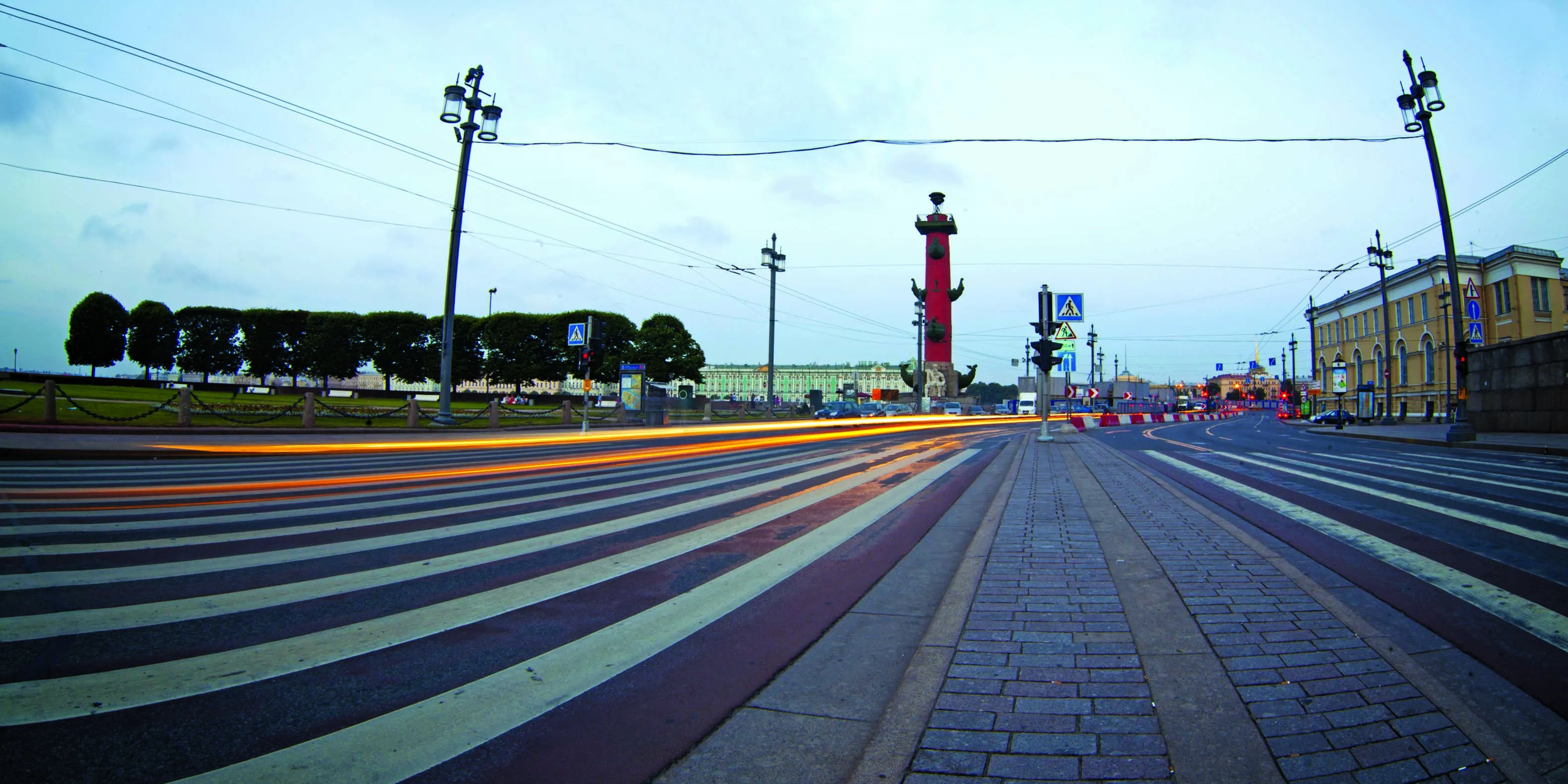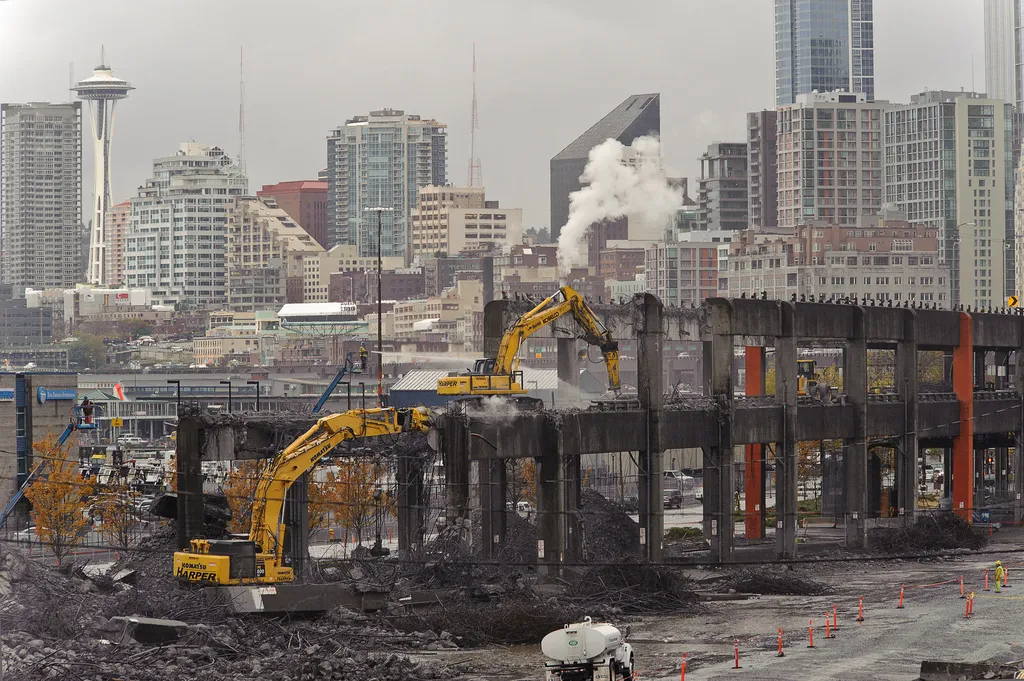Hugh Basham, transport strategy and policy director, UK and Ireland, at DHL Supply Chain, enters the ongoing global debate around the use of road tolls Road pricing has always polarised opinion. Whilst road users - who are already struggling to cope with high fuel prices and insurance premiums – may resent the additional expense, environmentalists and frequent drivers often welcome the introduction of tolls as offering an escape from gridlocked roads. Charging to use the road network isn’t a new phenomenon
November 12, 2013
Read time: 4 mins

RSSHugh Basham, transport strategy and policy director, UK and Ireland, at 7532 DHL Supply Chain, enters the ongoing global debate around the use of road tolls
Road pricing has always polarised opinion. Whilst road users - who are already struggling to cope with high fuel prices and insurance premiums – may resent the additional expense, environmentalists and frequent drivers often welcome the introduction of tolls as offering an escape from gridlocked roads.
Charging to use the road network isn’t a new phenomenon. For example, road tolls were introduced in England in the 12th and 15th centuries as a way of maintaining British roads. They only fell out of favour following the introduction of the railways in the 1800s.
More recently, road pricing initiatives have been introduced around the world in a variety of forms. For example, Singapore runs an ‘electronic road pricing system’, charging motorists to use certain routes on a pay-as-you-drive basis. Rates vary depending on the time of day and the type of transport, with heavy goods vehicles paying the most.
The US model tends to involve congestion charges for certain pinch-points on the network, whilst in China nearly all expressways and express routes charge tolls.
In Europe, Germany reserves ITS charges for trucks weighing more than 12tonnes using autobahn links, investing the income for new routes and upgrading existing roads. Other European countries including France, Spain, Italy and Portugal operate more traditional tolls which apply to all vehicles using motorways and other major roads.
The UK has tentatively introduced road pricing, for example with the M6 toll road and the London Congestion Charge. The Congestion Charge is now well established, with vehicles of all types required to pay a flat fee to enter a central charging zone during peak hours. Since ITS launch in 2003, the Charge has raised in excess of US$235 million (£148 million) that is reinvested in London’s transport system. There has been a 6% increase in bus passengers during charging hours, further relieving pressure on the road network.
Despite their widespread prominence, road tolls are not the only factor which can cut congestion.
There are more than one billion cars in the world, and that number is likely to double by 2020. In emerging markets congestion continues to be a challenge. However, in the developed world there is a decline in car ownership and distances driven. For example in Britain, France, Sweden and the US, the recession and higher fuel prices have cut distances motorists drive since 2008.
People are telecommuting and online shopping; young people are getting their licences later, and insurance premiums have soared, making driving seem prohibitive and unnecessary to many. Moreover, with the advent of social media, many young people choose to socialise online, and focus expenditure on foreign travel, education and gadgets. In fact, according to the Federal Highway Agency, from 2000 to 2010, the share of under 34-year-olds without a driving licence in the US grew from 21-26%.
For the logistics industry, technology and innovation is driving change, cutting congestion and reducing the impact of road tolls and charges for HGVs. In the UK, DHL has begun consolidating deliveries, putting multi-customer deliveries onto a single vehicle rather than using individual vehicles for each customer. Similarly, haulage vehicles have also been made more productive through better load and route management, cutting the number of deliveries that are required. Night-time deliveries are also becoming more commonplace as traffic-clogged city centres become more receptive to deliveries outside of peak hours.
DHL believes that road pricing and road tolls will become more prevalent around the world as a way of combating congestion on roads. However this growth should not drive up the cost of motoring and of doing business.
It is true that road pricing and toll roads can drive behavioural change amongst motorists, encouraging both the use of public transport as well as growth of out of peak hours travel. However similar options do not exist for hauliers whose activities are governed to a large extent by the needs of their customers. Therefore, given that the vast majority of congestion on the UK road network is not caused by the freight industry, DHL believes that the application of road tolls and charges should be on the user pays principle.RSS
Road pricing has always polarised opinion. Whilst road users - who are already struggling to cope with high fuel prices and insurance premiums – may resent the additional expense, environmentalists and frequent drivers often welcome the introduction of tolls as offering an escape from gridlocked roads.
Charging to use the road network isn’t a new phenomenon. For example, road tolls were introduced in England in the 12th and 15th centuries as a way of maintaining British roads. They only fell out of favour following the introduction of the railways in the 1800s.
More recently, road pricing initiatives have been introduced around the world in a variety of forms. For example, Singapore runs an ‘electronic road pricing system’, charging motorists to use certain routes on a pay-as-you-drive basis. Rates vary depending on the time of day and the type of transport, with heavy goods vehicles paying the most.
The US model tends to involve congestion charges for certain pinch-points on the network, whilst in China nearly all expressways and express routes charge tolls.
In Europe, Germany reserves ITS charges for trucks weighing more than 12tonnes using autobahn links, investing the income for new routes and upgrading existing roads. Other European countries including France, Spain, Italy and Portugal operate more traditional tolls which apply to all vehicles using motorways and other major roads.
The UK has tentatively introduced road pricing, for example with the M6 toll road and the London Congestion Charge. The Congestion Charge is now well established, with vehicles of all types required to pay a flat fee to enter a central charging zone during peak hours. Since ITS launch in 2003, the Charge has raised in excess of US$235 million (£148 million) that is reinvested in London’s transport system. There has been a 6% increase in bus passengers during charging hours, further relieving pressure on the road network.
Despite their widespread prominence, road tolls are not the only factor which can cut congestion.
There are more than one billion cars in the world, and that number is likely to double by 2020. In emerging markets congestion continues to be a challenge. However, in the developed world there is a decline in car ownership and distances driven. For example in Britain, France, Sweden and the US, the recession and higher fuel prices have cut distances motorists drive since 2008.
People are telecommuting and online shopping; young people are getting their licences later, and insurance premiums have soared, making driving seem prohibitive and unnecessary to many. Moreover, with the advent of social media, many young people choose to socialise online, and focus expenditure on foreign travel, education and gadgets. In fact, according to the Federal Highway Agency, from 2000 to 2010, the share of under 34-year-olds without a driving licence in the US grew from 21-26%.
For the logistics industry, technology and innovation is driving change, cutting congestion and reducing the impact of road tolls and charges for HGVs. In the UK, DHL has begun consolidating deliveries, putting multi-customer deliveries onto a single vehicle rather than using individual vehicles for each customer. Similarly, haulage vehicles have also been made more productive through better load and route management, cutting the number of deliveries that are required. Night-time deliveries are also becoming more commonplace as traffic-clogged city centres become more receptive to deliveries outside of peak hours.
DHL believes that road pricing and road tolls will become more prevalent around the world as a way of combating congestion on roads. However this growth should not drive up the cost of motoring and of doing business.
It is true that road pricing and toll roads can drive behavioural change amongst motorists, encouraging both the use of public transport as well as growth of out of peak hours travel. However similar options do not exist for hauliers whose activities are governed to a large extent by the needs of their customers. Therefore, given that the vast majority of congestion on the UK road network is not caused by the freight industry, DHL believes that the application of road tolls and charges should be on the user pays principle.RSS








